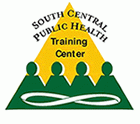
Community Partnerships and Perspectives - Advanced Level
Course Description:
This course is a continuation of the "Community Partnerships and Perspectives - Intermediate Level" course, ideally taken soon after the Intermediate level course. The course will explore methods for identifying and analyzing community health problems and their causes. The course stresses community organization skills and their application.
Target Audience
Academic Faculty/Staff, Federal Government Employees, State Government Employees, Local Government Employees, Non-Government Employees and Students
Learning Objectives
- Design a governance structure that reflects the unique needs and positive points of the collaborative described
- Develop an outline of a logical model for the evaluation for a community intervention in which they are currently involved
- Identify and propose specific techniques for the communication challenges of their community partnership including consensus building, conflict resolution and the development of shared vocabulary
- Develop a media outreach plan for their community that includes the cultivation of the media as a key collaborative partner
Instructors:

Linda Usdin, DrPH
Linda Usdin received her undergraduate degree from Duke University; a Master's Degree in Public Health from the University of California at Berkeley, California; and her Doctorate in Public Health from Tulane University School of Public Health and Tropical Medicine. For six years she managed Tulane University School of Public Health programs in Africa. For the last eight years she has worked as a planning and evaluation consultant to the Mayor's Office, the State Office of Public Health, local and national foundations, and community-based organizations. She was the team leader on a successful multi-year, multi-million dollar grant application for the New Orleans Jobs Initiative and for a violence prevention collaborative. She currently is working as Team Evaluator for the Annie E. Casey Making Connections Initiative in New Orleans. In addition, Dr. Usdin has taught courses on Building Community Collaboratives for the Centers for Disease Control and Prevention Graduate Certificate Program and for the South Central Public Health Leadership Institute.

Anne Witmer, MPH
Ms. Witmer is currently the Executive Director of PACE Louisiana, a community coalition of health and social service providers, government leaders, advocacy groups and concerned citizens who seek to promote optimum quality of life for frail and isolated elders at risk of nursing home placement. Previously, Ms. Witmer served as a senior staff member of the Louisiana Public Health Institute (LPHI) where she directed the Louisiana Turning Point Partnership, and the New Orleans Partnership for Care of the Uninsured. She had also served as the Program Coordinator, of the CDC/UC Public Health Leadership Institute and its alumni association, the Public Health Leadership Society. Ms. Witmer has written and published on several topics including the effective utilization of community health workers, innovative programs in health professions education, multi-sector collaboration in developing healthy communities, alternative structures for public health practice and collaborative leadership for public health. Ms. Witmer has had a variety of international and cross-cultural experiences including a four-month fieldwork fellowship in Mexico City; Vice President and Chair of the Health Committee for the local San Francisco chapter of Partners of the Americas; a study expedition on public health in Cuba; and extensive travel throughout Southern and Southeast Asia. She holds a Master of Public Health degree from the University of California at Los Angeles and a Bachelor of Psychology degree from the University of California at Berkeley from which she was graduated with honors.
Available Credit
- 7.00 Participation/CETulane Professional and Continuing Education (PaCE) awards 7.00 hour(s) of credit for completing Community Partnerships and Perspectives - Advanced Level
Price
Required Hardware/software
System Settings
This course is designed to work most effectively if your computer and internet connection meet certain minimal requirements. This course can be accessed using a Windows 10 PC or a Mac with High Sierra1, Mojave, or Catalina. Pop-up blockers should be disabled when viewing the course. Internet Explorer 11 (for Windows 10), or the current version of Google Chrome, Mozilla Firefox, or Apple Safari (for Windows 10 and or Mac) is required. Many of our courses require Java and JavaScript enabled.
Links to External Websites
Links to websites outside this course will open in a new window or tab. Some browsers may minimize the course window. If this occurs, maximize the course window to return to the course.
Adobe Acrobat Reader (for desktops and laptops)
Adobe Acrobat Reader is required to access some documents in this course. If you need to download a free copy of Acrobat Reader, click here.
Internet Connection Speed
A minimum download speed of 1.5 Mbps is recommended for an optimal experience, which is commonly the speed associated with a basic DSL or a cellular/satellite connection. A faster connection, such as cable or fiber service, with further enhance your online experience. A Wi-Fi connection is generally acceptable, but it is dependent upon one of the two services mentioned above. You can check your internet connection speed at http://www.speedtest.net/.

 Facebook
Facebook X
X LinkedIn
LinkedIn Forward
Forward